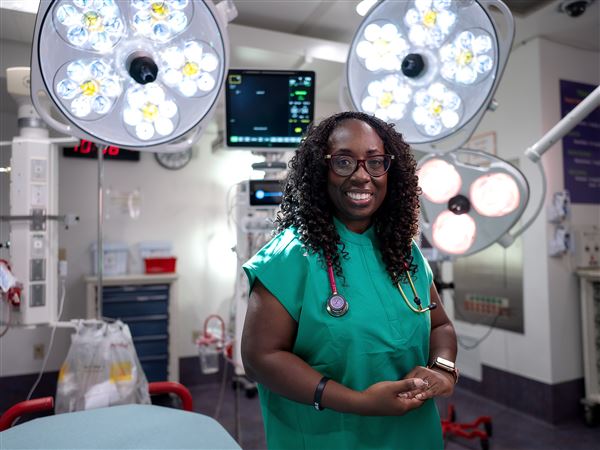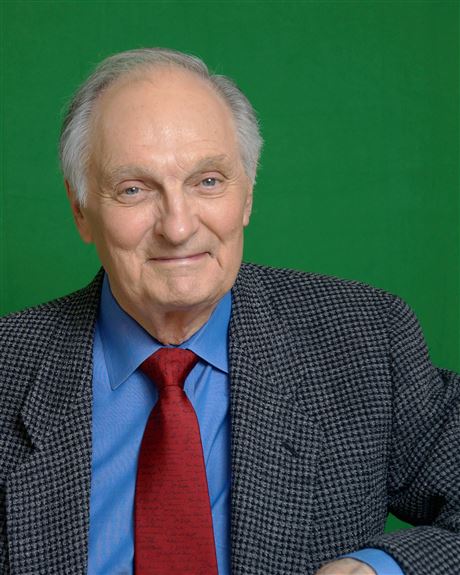No wonder “M*A*S*H” was so brilliant.
Instead of retreating to their dressing rooms between shots, the actors sat in a circle and made one another laugh. “When they called us to the set, we kept the connection going as we walked across the sound stage. When the camera started rolling, we were still engaged, but now we were using the words and emotions called for in the script. That connection gave us a jolt of life,” Alan Alda writes in a new book.
Mr. Alda, 81, tries to give scientists, engineers, doctors, patients, parents, spouses, workers, bosses and others a welcome jolt with “If I Understood You, Would I Have This Look on My Face?”
Random House ($28)
The book, subtitled “My Adventures in the Art and Science of Relating and Communicating,” was inspired by efforts to encourage scientists to better communicate. The actor best known as Hawkeye Pierce on “M*A*S*H” helped to found the Alan Alda Center for Communicating Science at Stony Brook University in New York and spent 11 years as host of PBS’s “Scientific American Frontiers.”
“As we helped scientists be clear to the rest of us, I realized we were teaching something so fundamental to communication that it affects not just how scientists communicate but the way all of us relate to one another. We were developing empathy and the ability to be aware of what was happening in the mind of another person.”
Forget a spoonful of sugar in helping the medicine go down. Empathy is the key to connection and success, studies of patient reactions to doctors' communication skills found.
“Expressing empathy and concern, providing information on the illness and its treatment, and encouraging patient participation in decision-making” made a real difference. “In studies with diabetics, for instance, when the patients rate their doctor as empathetic, their cholesterol and blood sugar numbers improve,” he writes, and flu patients get better sooner and even the common cold is shorter and less bothersome.
Mr. Alda explores how improvisational exercises that might seem fanciful, foolish or for theater nerds only — such as having one person shape an imaginary object in her hands and pass it to the next person — can produce remarkable results in allowing strangers or colleagues to be in sync or better relate to an audience.
He makes a point that could come in handy the next time you’re puzzling over what a physician or banker or contractor is saying. “The person who’s communicating something is responsible for how well the other person follows him. If I’m trying to explain something and you don’t follow me, it’s not simply your job to catch up. It’s my job to slow down.”
The author also endorses a fundamental rule of improv: responding to another person with the phrase “Yes and,” allowing ideas to grow and spark instead of instantly shutting them down.
Along those same lines, Mr. Alda warns against the, “Sound of Certainty: the triumphant, but self-defeating, tone of voice that announces, ‘I know what I’m talking about and that ends the discussion.’ ” It’s especially unwelcome in a marriage or a relationship where, once again, empathy can only strengthen the bond if a husband looks at dishes in the sink and imagines his partner staring at them in the morning.
“If he sees it through her eyes, he’ll be more aware of what she’ll feel, and that brief moment of empathy could engender some cooperation on his part.” Maybe he will even wash them.
If you’re an Alda fan in search of memoir material, track down 2005’s “Never Have Your Dog Stuffed and Other Things I’ve Learned” or 2007’s “Things I Learned While Talking to Myself.” This book sprinkles in some show business memories, but it’s driven by science although aimed at everyone. It can seem repetitive, but Mr. Alda proves his point about how there are different ways to express the same thought.
Mr. Alda’s curiosity, intelligence and desire to wipe out baffled and bewildered faces make a compelling case for clarity, communication and, always, empathy.
Barbara Vancheri, who reviewed “Never Have Your Dog Stuffed,” is the former movie editor of the Pittsburgh Post-Gazette.
First Published: July 8, 2017, 4:00 a.m.
















